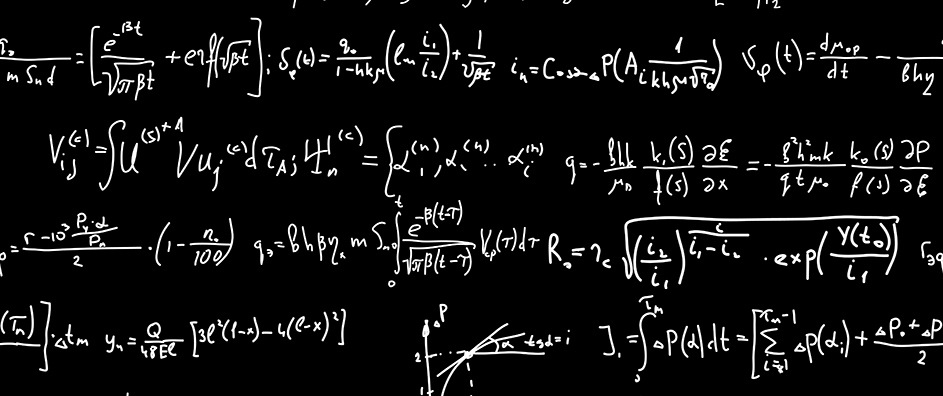The intersection of mathematics and spirituality is a domain often overlooked, bespeaking a profound inquiry: Did God create math? This question compels an investigation into both the essence of mathematical principles and the realm of divine creation. In exploring this topic through the lens of Bahá’í teachings, we embark on a journey that fosters a shift in perspective and piques curiosity about the relationship between God, the universe, and the abstract world of mathematics.
Mathematics, at its core, is an intricate tapestry woven from logic, patterns, and relationships. These elements manifest not only in numerical forms but also in the universal laws that govern existence. The Bahá’í Faith posits that knowledge, whether derived from the physical or metaphysical realms, is innately connected to the divine. Thus, when contemplating the genesis of mathematics, one must consider the Bahá’í view that all knowledge is a refined reflection of God’s attributes.
To comprehend the concept of mathematics as a divine creation, it is essential to delve into the Bahá’í principle of the oneness of humanity and the unity of science and religion. The Bahá’í teachings underscore that science, including mathematics, is a fundamental avenue through which humanity can grasp the reality of God. This nexus transforms the mathematical realm from a mere tool for calculation into a profound expression of divine order.
In the Bahá’í literary corpus, various writings suggest that God’s creation is fundamentally harmonious. Mathematics epitomizes this harmony, providing a framework that reveals the orderly structure of both the physical and spiritual worlds. From the geometric patterns in nature to the numerical symmetries found in music and art, mathematics serves as a language through which the beauty of creation is articulated.
Consider the notion of infinity: a concept that challenges human comprehension while also underscoring the divine nature of God. In the teachings of Bahá’u’lláh, the founder of the Bahá’í Faith, we find that God is often described as infinite and unknowable. Mathematics, particularly through its exploration of infinite sets and concepts like calculus, mirrors this divine attribute. In doing so, it invites individuals to contemplate the vastness of creation and the mysteries of existence beyond the limitations of time and space.
The rich interplay between mathematics and the natural sciences further illuminates the ways in which God is reflected in mathematical truths. The laws of physics, for instance, are intricately described using mathematical equations. Bahá’í teachings assert that God has endowed humanity with the faculties of reason and intellect to discern these truths, thus fostering deeper understanding of His creation. This intellectual pursuit is not merely an academic endeavor; it serves as a pathway to spiritual enlightenment.
Moreover, the Bahá’í perspective encourages an exploration of ethics and morals through the lens of mathematics. The abstractness of mathematics allows for a unique platform to examine justice, equity, and the moral implications of scientific advancements. As societies grapple with complex issues—such as wealth distribution, ecological sustainability, and technological innovations—mathematical principles can help frame ethical discussions while underscoring the necessity of integrating moral considerations into scientific endeavors.
The pursuit of mathematical knowledge, therefore, becomes not only an intellectual journey but a spiritual one as well. The Bahá’í Faith places a strong emphasis on the transformative power of education, positing that enlightened minds can contribute to the betterment of society. Knowledge, seen through the prism of both mathematics and spirituality, can foster a more harmonious world, aligning with the overarching goal of Bahá’í teachings: the promotion of global unity and peace.
Furthermore, the perspective that God may have conceived mathematics brings forth a deeper engagement with the field. It compels both scholars and laypersons to reconsider their relationship with mathematics—not merely as a utilitarian tool but as a divine language that elucidates the fabric of existence. This shift in perception can imbue individuals with a greater appreciation for mathematical beauty and its capacity to facilitate profound reflection on life and the cosmos.
A pivotal aspect of the Bahá’í teachings is the emphasis on the continuous evolution of knowledge. This principle underscores that as humanity progresses, additional truths will unfold, revealing new understandings of the divine. In the realm of mathematics, this prospect of discovery is exhilarating. Innovations in mathematical thought and application not only enhance our technological capabilities but also promote a collective awakening to the harmony that underpins our universe.
In summation, the inquiry into whether God created mathematics transcends mere philosophical musings. It engenders a rich terrain for exploration that intersects spirituality, ethics, and the relentless quest for knowledge. The Bahá’í teachings offer an illuminating perspective that elevates the role of mathematics from a set of abstract concepts to a divine reflection upon which humanity can ponder, explore, and ultimately aspire to achieve greater truths. This engagement not only enriches our understanding but also deepens our spiritual connection to the universe, compelling us to embrace the mysteries of existence with curiosity and reverence.
